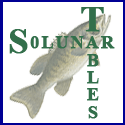Bass on Hook is Supported by our readers.
As an Amazon Associate We earn commissions from qualifying purchases with no extra cost to you.
For more informtion read our Amazon Affiliate Disclosure and Affiliate Disclosure Policies.
Pro Staff Question - What Is The Best Way To Learn How To Bass Fish Without A Boat
Charles "The Bass Doctor" Stuart's Answer

Hi Roy!
Firstly, please let me apologize for my late reply, I have been in Europe on a small vacation to celebrate my 50th birthday, so I had no access to e-mail while I was away.
Anyway I am back and ready to respond!
Thank you for such a great bunch of questions!
Lets see if I can provide you with some quality answers for you to mull over while moving forward with your bass fishing career.
Bass Fishing Without A Boat
Roy this is a tough sport for anyone without a boat.
You are "at the mercy" of and reliant upon the knowledge the person who's boat you are fishing from has.
If they are not on fish, chances are, neither are you!
I started out as a non-boater in my local fishing club and to put it bluntly I got my butt kicked each week for 18 months!
I can say I learned an awful lot from those experiences, but it is not something I recommend if you want to take this sport to the next level of competition.
Lure Selection Is Vital To Catch Bass Successfully.
You MUST understand the environment in which you are fishing and the habitat of the fish you are seeking.
Again, if you are a non boater, you basically HAVE to do what the person running the boat is doing, i.e. if he/she is spinnerbait fishing, you either use a spinnerbait or a fast retrieve lure that can keep up with the speed at which your partner is fishing.
If they are slowly working a piece of structure or a weed edge, you need to be fishing a jig and pig or flipping a tube worm.
The best advice I can give you is when you know who your partner is, ask them the following questions:
- Where are we fishing?
- What are "we" using for lures (you might not get the color, but you can work that out for yourself when you see the water clarity etc.)?
- What depth (Vital for different weights and/or lure selection)?
- What type of structure (Rocks, trees, weededge etc)?
- Average water temperature (this will tell you how fast or slow the fish are moving).
- Distance from the ramp (this tells you how long you have to catch your limit and get back without penalty).
- How much tackle should I bring (Remember NOT to carry too much!)?
How Long Does It Take To Learn How To Be Successful At Bass Fishing
Roy it takes a lifetime!
If anyone ever told me they knew everything about fishing, I would tell them to take up golf!
I have been fishing for 44 years and each time I go on the water I learn something new.
Just a few weeks ago I caught a 6lb 4oz smallmouth bass that had me convinced it was a musky for the first 5 minutes of the fight!
Then the fish tried to break of under the boat at the trolling motor and then at the big engine.
Once the “behemoth” was in the boat, I could not fish for 30 minutes from the excitement.
That tells me I will never take any fish or lure or moment for granted!
Bottom line:
As long as you can adapt to any situation, depth of water and weather conditions, understand your equipment and its limitations, seasonal changes and fish behavior, you will do well!
Oh and as soon as you can afford it, BUY A BOAT!
Tight Lines!
Charles "The Bass Doctor" Stuart
BassonHook Pro Staff
Dennis "The Fishin Professor" Bryant's Answer

Roy,
Thank you for your inquiry through Bass On Hook.
I've been asked to add my response to your inquiry.
I hope that you don't mind too much!
Your questions were truly unique, from my point of view, in respect to your wanting to know all the basics of Bass Fishing starting out basically at "ground zero" and learning them all well enough to become a moneymaking professional tournament fisherman.
WOW! That's going to be “a tough row to hoe” for just about anyone today!
It would take a book bigger than "War & Peace" to give you an in-depth outlook on each of the skills necessary to fulfill your needs.
That part will be up to you.
Sitting down & actually READING what other knowledgeable anglers say about some of the; "how to's", "when to's" and "where to's".
But, it'll certainly get you started in the right direction.
I don't know how any of the other Pro Anglers will answer this question for you, because we each view the sport so differently and we each have our own "pet" lures, totally unique fields of fishing expertise and personal preferences.
So, just allow me try to take each of your questions in turn and try to answer them for you, from strictly my own point of view.
Which Artificial Lures To Use In Your Basic Learning Process:
There are really only four 'basic' lure styles to use at the beginning of the learning curve when it comes to fishing for Largemouth or Smallmouth Bass.
Worms:
This is the FIRST lure to learn & become proficient using and also the easiest to use from a bank.
It's always been the 'bread & butter' lure for a serious angler.
There are so many variations in colors, weights, presentations and styles of presentation, that it could take you years to become proficient in using just this one lure-style.
Add a lizard-looking creature-critter in the spring time, tubes during the fall and the basics will become more & more obvious to you each time you put one on the end of your line.
Spinnerbaits/Buzzbaits:
One of the Basic tools of the trade!
Learn when/where to use these fantastic, "faster" lures during warm weather to induce 'reaction strikes' from the Bass alongside and in weedbeds & standing weeds along the bank and in shallower areas of most lakes.
There are hundreds of thousands of different colors & styles of spinnerbaits and buzzbaits, and they all work well for everybody at some time, everywhere!
Crank Baits:
These can be used to work the areas outside of the weed edges and through the area of the first drop.
If you think there are a lot of styles and setups for worms, wait until you decide to pick up a few of these.
There are shallow-diving, floating, deep-diving and suspended styles in every weight, color and shape that you can imagine!
And, every style, color and action of lure has it's own following.
Jigs:
Again, there are too many styles and too many varied uses to pick out a single style to call "the best one to start with".
These can be fished just about anywhere, including the thickest "junk" and at any depth that there are fish.
Learn to fish these lures well and they'll work for you!
Half the battle is already won!
How To Learn The Sport Of Bass Fishing Without A Boat:
Stealth!
Walk quietly and slowly into the area you want to fish.
Never allow your profile or your shadow to break the plane of the edge of the water until after you've fished that area by long distance.
That BIG FISH just maybe may be sitting in as little as six inches of water and with their nose pushed right up to the edge of the bank!.
Spook IT and your day will be ruined!
Waders or even a float-tube will help give you silent access to some waters that even a bass boat can't reach.
How Long It'll Take To Start Earning Money Fishing Tournaments:
Depends On You!
This question, is one that's impossible for me to even venture a guess at!
It all depends on you and only you!
For a person with natural talent and a quick learning curve it may take only a few years.
For others it may take a lifetime and still not produce the desired results.
My father, both of my brothers and all thirty-six of my cousins fish ~ but none have ever won cash as a participant in a fishing-tournament.
I've fished since I was three years-old.
I made my first dollar from fishing when I was twelve by betting a dime on the results of a day's fishing with twelve other kids my own age.
I caught my first Largemouth Bass on a live minnow when I was sixteen.
That fish was still (I believe) the largest Bass I've ever caught in my life.
It caught me every bit as much, probably more, than I caught it!
Bass fishing then became almost an obsession.
The more fish I caught, the more I learned.
The more I learned, the more fish I caught.
My first tournament paycheck came during my first year of tournament fishing when I was twenty-one.
My first tournament win (½ of $250 first-prize), came as a non-boater when I was twenty-five.
My first win as a professional came three long years after I invested $500 hard-earned dollars in my first used tri-hull tournament Bass-Boat.
I fished as a professional angler for five years before I was able to get my first paying tournament-sponsor.
Final Words
I only fished Bass-Tournaments for twenty-two years and loved the majority of the time I spent doing it.
I really miss fishing tournaments myself but I make up for that by helping younger anglers learn the fine points of the art.
Fishing well enough to be competitive is just that ~ it's an art!
There are no shortcuts in this art form!
Fishing competitively requires a total dedication to the sport and lots of long hours of sincere hard work!
Only after putting in those hours of work and beating other anglers at their own game, can you ever hope to earn a tournament paycheck.
In the end, it's not an easy task but it sure is fun!
Good Fishin'!
Dennis Bryant
The Fishin' Professor!










